
How Influencers are Redefining Sports Marketing
Published on
by Izzy Fawcett
Sports marketing has changed dramatically in the digital age. Where brands once relied solely on traditional advertising, they now have the option to use influencers and niche sports personalities who command dedicated audiences online. This shift reflects how fans consume sports today: not only through live games and highlight reels but through Instagram stories, TikTok clips, and YouTube vlogs. As a result, influencers have become central players in shaping how brands connect with fans.
In this Insight:
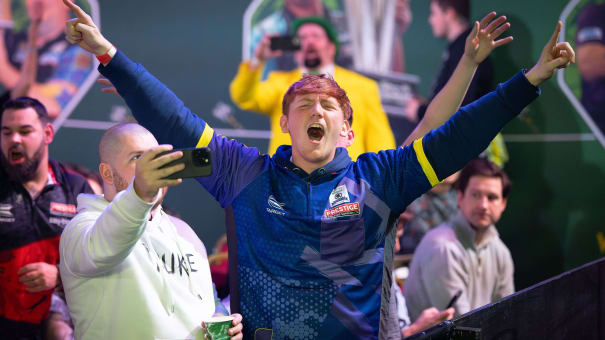
Why Use Influencers?
The appeal of influencer marketing lies in its authenticity. Fans often see influencers, especially athletes, as more relatable than official brand accounts. By sharing personal stories, training routines, or even glimpses into life off the pitch, influencers create trust and intimacy. This allows brands to connect with audiences in a way that feels natural rather than forced.
Another advantage is precision: influencers can target specific demographics, from Gen Z football fans scrolling TikTok to runners following training tips on Instagram. For many companies, working with mid-tier or micro-influencers also provides a cost-effective alternative to big-budget sponsorships, while often driving higher engagement.
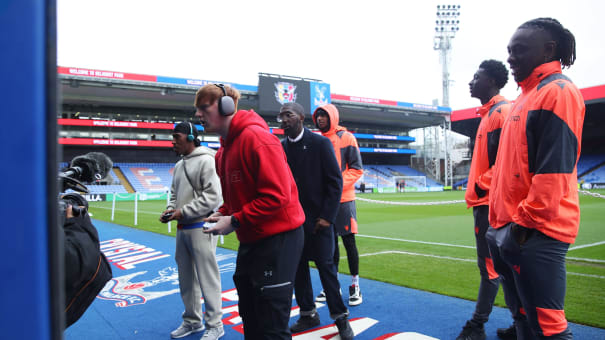
Risks
However, the strategy is not without risks. Influencers are individuals first, which means brands do not have full control over their image. Any controversy, whether on or off the field, can quickly reflect poorly on the companies they represent. There is also the challenge of sustaining attention. While influencer-led campaigns can create quick bursts of visibility, they don’t always build long-term loyalty.
Measuring success can be difficult too; a viral post may generate likes and shares but translating that into sales is harder to prove. And with so many brands now tapping into influencer marketing, audiences are becoming increasingly wary of constant promotions, making authenticity more crucial than ever.
Successful Collaborations
Examples of successful collaborations highlight both the scale and variety of this trend. Cristiano Ronaldo’s partnership with Nike remains one of the most powerful athlete-brand collaborations, with his posts often outperforming entire marketing campaigns. Naomi Osaka’s work with Beats by Dre shows how an athlete’s influence can extend beyond sport, with her advocacy for mental health and social justice strengthening the brand’s cultural impact.
Gymshark, meanwhile, built its entire identity around influencers, working with fitness creators rather than traditional athletes to create a community-driven movement. Even established brands like Under Armour have turned to micro-influencers and athletes to broaden their appeal and connect with everyday consumers.
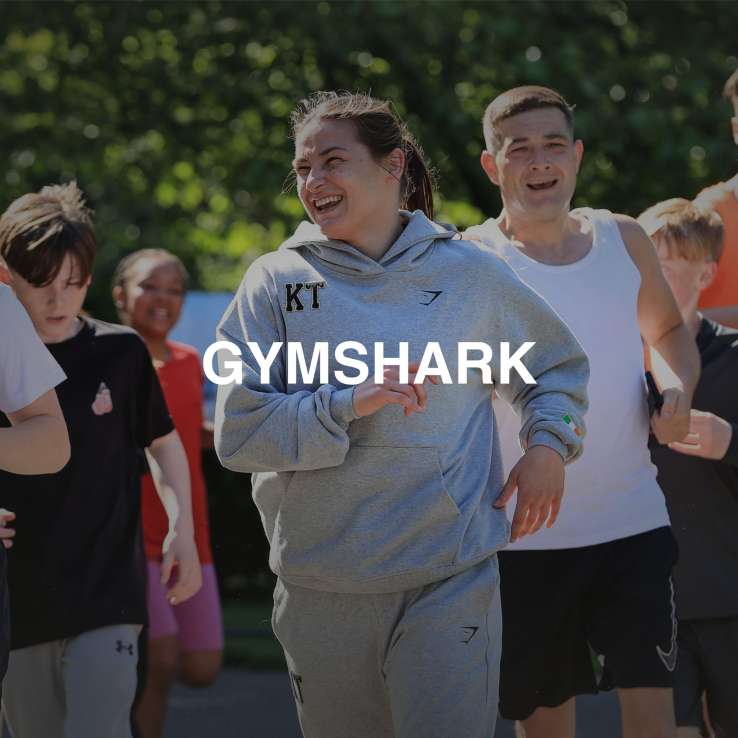
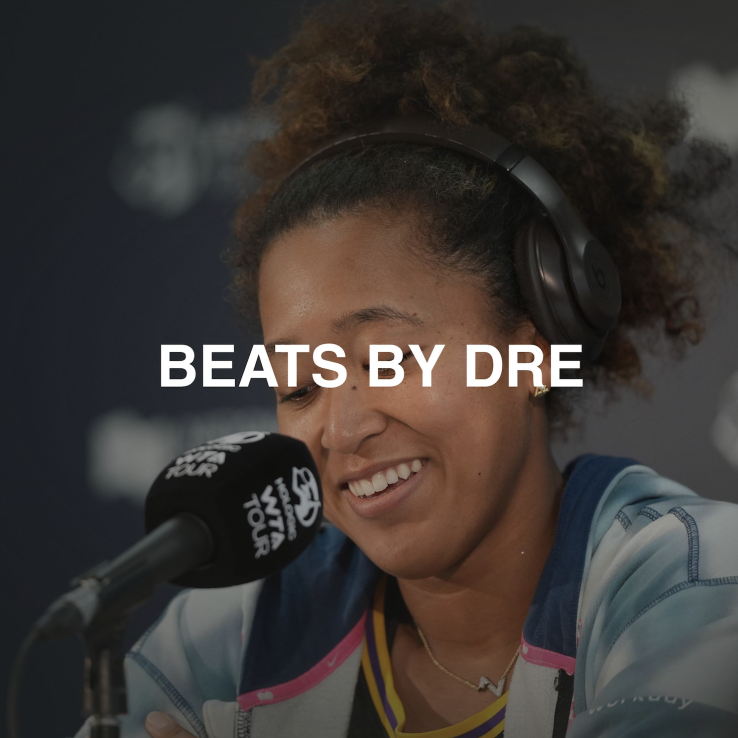

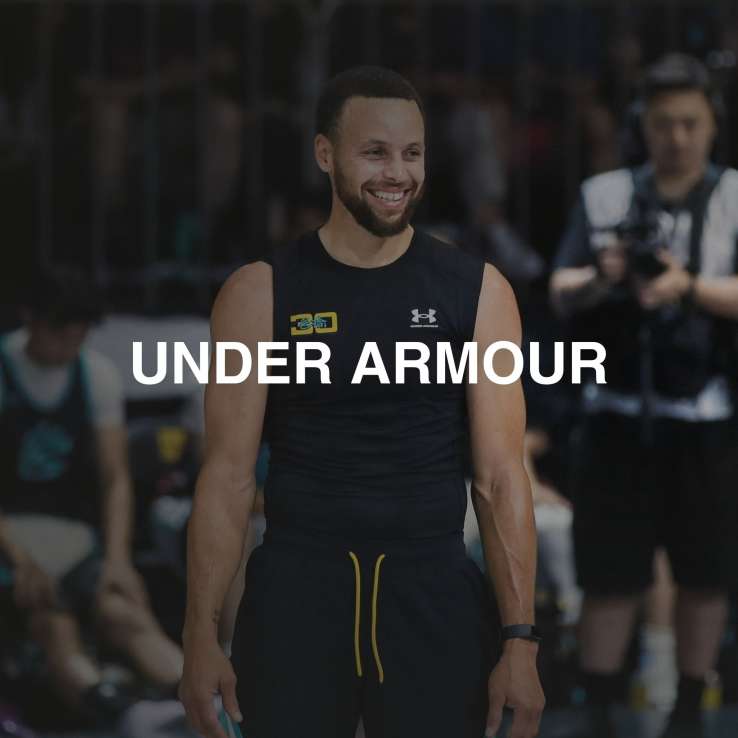

Wimbledon: How Events Can Benefit From Influencers
Major sporting events have also crossed into the world of influencers. Wimbledon has become more than just a tennis tournament in recent years - it’s a global cultural event and influencer hotspot. The organisers invite influencers because they help extend Wimbledon’s reach far beyond traditional tennis audiences.
Influencers bring access to new demographics, especially younger fans who might not otherwise follow tennis closely. By sharing their experiences on TikTok, Instagram, or YouTube, influencers make Wimbledon feel relevant to audiences that consume content primarily through social media rather than TV or print.

While sports broadcasters focus on match play, influencers showcase everything else that makes Wimbledon special: the fashion, the traditions, the food, and the social atmosphere. This content positions Wimbledon as both a sporting spectacle and a cultural moment.
It’s also about amplifying global visibility. Wimbledon already has prestige, but influencers extend its presence into conversations about lifestyle, fashion, entertainment, and travel. This helps the tournament maintain its reputation as not only a top-tier sporting event but also a social and cultural landmark.
Finally, influencer partnerships support sponsorship value. Brands that align with Wimbledon - such as Ralph Lauren, Evian, or Rolex - benefit when influencers feature their products within the Wimbledon experience. It adds another layer of exposure beyond courtside signage or TV ads.

Conclusion
Ultimately, influencers have reshaped the landscape of sports marketing. They offer brands an opportunity to build personal, authentic relationships with fans, while also introducing risks that require careful management. When done well, these partnerships can do more than just sell products - they can inspire loyalty, shape culture, and redefine how fans experience sport.
Frequently Asked Questions
Marketing is crucial in sports for several reasons. Firstly, it enhances the visibility and popularity of sports teams, athletes, and events, attracting a broader audience and increasing fan engagement. Effective marketing strategies help create a strong brand image, fostering a connection between fans and their favourite teams or athletes. This emotional connection often leads to increased fan loyalty and support, translating into higher ticket sales, merchandise purchases, and overall revenue for sports organisations.
Moreover, marketing in sports plays a pivotal role in securing sponsorships and partnerships. Brands are drawn to sports entities with a significant and engaged fan base, offering lucrative opportunities for sponsorship deals. These partnerships not only provide financial support but also contribute to the overall prestige and marketability of the sports brand.
In the contemporary landscape, digital marketing and social media have become integral components of sports marketing, allowing for real-time interaction with fans, personalised content delivery, and global reach. Social media platforms serve as powerful tools to amplify the sports narrative and engage with fans on a more intimate level.
Ultimately, successful sports marketing goes beyond promoting matches and events; it cultivates a culture, builds communities, and transforms sports into a compelling and marketable entertainment product, driving the industry's growth and sustainability.
Sports marketing plays a pivotal role in the sports business by strategically promoting sports events, teams, and athletes to engage and captivate audiences. Here are key aspects highlighting its importance:
Brand Visibility and Exposure: Sports marketing enhances the visibility of brands associated with sports events, teams, or athletes. Logos on jerseys, stadium signage, and sponsorships provide exposure to a wide and diverse audience.
Fan Engagement: Marketing initiatives build connections with fans, fostering a sense of loyalty and passion. Engaging content, promotions, and interactions with fans contribute to a vibrant fan community.
Revenue Generation: Successful sports marketing attracts sponsors, advertisers, and broadcasters, generating revenue for teams, leagues, and athletes. Sponsorship deals, merchandise sales, and broadcast rights contribute significantly to the sports business ecosystem.
Athlete Endorsements: Sports marketing enables athletes to build personal brands through endorsements. Endorsement deals, social media presence, and personal appearances enhance an athlete's marketability and income.
Event Promotion: Sports marketing is crucial for promoting sports events, driving ticket sales, and maximising attendance. It creates excitement and anticipation, turning sporting events into must-see experiences.
Global Reach: Through digital platforms and international broadcasts, sports marketing facilitates global reach. Fans from around the world can connect with teams and athletes, expanding the sports business beyond geographical boundaries.
Enhancing Fan Experience: Marketing efforts contribute to enhancing the overall fan experience. From interactive social media campaigns to in-stadium activations, sports marketing adds value and excitement to the fan journey.
Building Partnerships: Sports marketing plays a key role in forging partnerships with corporate sponsors, advertisers, and media outlets. These partnerships contribute to the financial sustainability of sports entities.
Storytelling and Narratives: Effective sports marketing involves storytelling and creating compelling narratives around athletes, teams, and events. This emotional connection resonates with fans and contributes to the broader sports culture.
In summary, sports marketing is integral to the success and sustainability of the sports business. It drives revenue, engages fans, and creates a dynamic ecosystem where sports entities, sponsors, and fans mutually benefit from the excitement and passion surrounding sports.
Sports marketing encompasses various strategies and channels aimed at promoting and improving the visibility of sporting events, teams, athletes, and associated brands. Here is a list of the main types of sports marketing:
Sponsorship marketing:
- Naming rights: Companies pay for the naming rights to stadiums, events, or competitions, thereby associating their brand with a sports property.
- Team sponsorship: Brands sponsor sports teams and gain visibility through their logos on jerseys, equipment, and team facilities.
- Athlete promotion: Brands partner with athletes to promote their products, leveraging the athletes' image and popularity.
Advertising in sports
- Audiovisual advertising: commercials aired during televised or streamed sporting events.
- Stadium advertising: billboards, banners, and digital screens in sports venues.
- Print and digital advertising: ad placements in sports magazines, websites, and mobile apps.
Event marketing
- Promotions and gifts: special offers, discounts, or gifts to attract participants.
Social media marketing
- Content creation: sharing engaging and relevant content on platforms such as Instagram, Twitter, and Facebook.
- Influencer partnerships: collaborating with sports influencers and athletes to reach a wider audience.
- Live streaming: broadcasting live events, behind-the-scenes footage, or exclusive content on social media.
Community and local marketing
- Youth and amateur sports: engaging with local communities through youth programs and local initiatives.
- Community events: participating in or organizing events that help build relationships with local residents.
- Sponsorship of local teams: supporting and sponsoring local amateur sports teams.
Content marketing
- Branded content: creation and promotion of content in line with brand values in a sports context.
- Documentaries and series: development of long-form content telling compelling stories in the field of sports.
Digital and mobile marketing
- Mobile apps: developing apps for teams or events to boost fan engagement.
- Email marketing: using email campaigns to communicate with fans and promote events.
- Augmented reality (AR) and virtual reality (VR): integrating immersive experiences into marketing efforts.
Public Relations (PR) and Media Relations
- Press releases: Distributing information to the media to generate media coverage.
- Media interviews: Organizing interviews with athletes, coaches, and team representatives to build positive narratives.
By combining these different types of sports marketing, organizations can create comprehensive, integrated strategies to achieve their marketing goals within the dynamic sports industry.
Choosing the right target audience in sports marketing is crucial for creating effective and resonant campaigns. Here are tips and strategies to identify and engage the appropriate audience:
Define Marketing Objectives: Clearly outline your marketing goals. Whether it's brand awareness, fan engagement, or product sales, understanding your objectives guides audience selection.
Understand Your Brand: Identify the core values and identity of your brand. Understanding your brand's personality helps in aligning with an audience that shares similar values.
Analyse Demographics: Gather demographic data such as age, gender, location, income, and education. This information helps create a profile of your ideal audience.
Study ‘Psychographics’: Go beyond demographics to understand the psychographics of your audience - values, interests, lifestyles, and attitudes. This provides deeper insights into consumer behaviour.
Consider Fan Affiliation: If you are associated with a sports team or event, consider the existing fan base. Targeting fans of the specific sport or team ensures a built-in audience.
Utilise Market Segmentation: Segment your target market based on shared characteristics or behaviours. This allows for more personalised and targeted marketing efforts.
Evaluate Media Consumption Habits: Understand where your target audience consumes sports content. Whether it's through TV, social media, or live events, tailor your strategy to their preferred channels.
Leverage Analytics and Data: Utilise data analytics to track consumer behaviour, engagement metrics, and market trends. This data-driven approach helps refine your targeting over time.
Engage in Market Research: Conduct surveys, interviews, or focus groups to gather direct feedback from your audience. This qualitative data can provide valuable insights.
Monitor Competitor Strategies: Analyse the sports marketing strategies of competitors targeting a similar audience. Identify gaps or opportunities to differentiate your approach.
Embrace Personalization: Tailor your messaging and campaigns to resonate with specific segments within your target audience. Personalization enhances engagement and connection.
Stay Flexible and Adaptive: Consumer behaviours evolve, and trends change. Stay flexible and adaptive, adjusting your strategies based on shifts in the market.
Utilise Social Listening: Monitor social media conversations to understand what your target audience is discussing, sharing, and engaging with. Social listening provides real-time insights.
Create Buyer Personas: Develop detailed buyer personas representing your ideal customers. This helps humanise your target audience and guides content creation.
Engage in Continuous Feedback: Encourage feedback from your audience through surveys, comments, or reviews. Continuous feedback helps refine your understanding of their preferences.
By combining these strategies, sports marketers can identify, understand, and engage their target audience more effectively, leading to successful campaigns and a stronger connection with consumers.
Partnership marketing is an important part of the sports industry. It involves collaboration between a sports team, league, or event and a brand or company. This collaboration can take many forms, such as sponsorship, product placement, or joint promotions. The goal of partnership marketing is to benefit both parties by increasing exposure, revenue, and brand recognition.
By partnering with a sports team or league, a brand can reach a large audience of fans who are passionate about their sport. This can lead to increased brand recognition and customer loyalty, as well as increased sales of particular products. Additionally, by offering special promotions or experiences, teams and brands can create a more memorable and enjoyable experience for fans.
When selecting the right type of partnership, teams and brands should consider factors such as brand values, fan demographics, and the overall image of the sport, to ensure it remains authentic whilst still connecting with the target audience.
Sports partnerships can be defined as a new level of sports sponsorships: they represent a tighter-fitted collaboration between sports and businesses or brands.
Partnerships are less based on standard marketing benefits and more tailor-made on the company’s specific needs, and several company levels are involved in the sports project: from marketing to Research & Development, from production to management.
Partnerships tend to be focused on the improvement and development of specific products or services, and are usually long-term. They can be very effective on the customers and clients, who witness a true affinity with some of the world’s most winning properties. Partnerships are often multidimensional and multi-layered, with the development of new tech, as well as new products and the marketing that comes with them.
Establishing a partnership with an athlete, club, or federation involves a strategic approach and effective negotiation. Here are steps for each:
Athlete Partnership
Research: Identify athletes whose values align with the brand. Consider their audience demographics and market relevance.
Contact and Proposal: Reach out to the athlete or their management with a well-crafted proposal outlining the partnership benefits, objectives, and terms.
Negotiation: Discuss terms such as sponsorship duration, financial arrangements, and activation plans. Ensure mutual understanding and agreement.
Club Partnership
Research and Alignment: Research clubs that resonate with the brand's values and target audience. Align objectives with the club's goals.
Engage with Key Stakeholders:Reach out to club executives or sponsorship managers to discuss potential collaborations.
Customised Proposal: Present a tailored proposal highlighting the benefits, including branding opportunities, fan engagement, and joint marketing initiatives.
Federation Partnership
Understand Objectives: Understand the federation's goals and priorities. Align brand objectives with the federation's mission.
Engage with Decision-Makers: Reach out to key decision-makers within the federation to discuss potential partnerships.
Collaborative Planning: Work together to create a mutually beneficial partnership plan, considering financial contributions, promotional activities, and long-term goals.
Building relationships, demonstrating the value of the partnership, and negotiating terms collaboratively are key elements in establishing successful partnerships in the sports industry.
A sports marketing agency is a specialised firm that focuses on promoting and enhancing the brand image of sports-related entities, including athletes, teams, leagues, and sports events.
These agencies operate at the intersection of sports and marketing, offering a range of services to clients looking to maximise their visibility and commercial success within the sports industry.
Sports marketing agencies devise and implement strategies to build and manage brand partnerships, negotiate sponsorship deals, organise promotional events, and leverage digital and traditional media for effective outreach.
They play a crucial role in creating and executing marketing campaigns that resonate with sports enthusiasts and broader audiences, aiming to boost engagement, revenue, and overall brand value for their clients in the dynamic and competitive world of sports.
SPORTFIVE is a global sports marketing agency that specialises in sports rights, marketing, and entertainment. We work with sports organisations, clubs, and brands to create and optimise commercial opportunities in the sports industry. SPORTFIVE is involved in various aspects of sports business, including the sale of broadcasting rights, sponsorship and partnership management, stadium naming rights, and other marketing initiatives.
SPORTFIVE creates innovative, engaging solutions that are worthy of the incredible sports, athletes and partners we work with, and the passionate fans who follow them. Campaigns are built collaboratively, based on trust and transparency, and enabled by a deep understanding of the industry, the agency’s global reach, digital intelligence and creative courage.
The result is gamechanging sports partnerships that redefine standards in the sports and entertainment space.
SPORTFIVE believes in the power of five - bringing brands, rights holders, media platforms, fans and ‘us’ together through sport.
SPORTFIVE is a global sports marketing agency that specialises in various aspects of the sports and entertainment industry. The agency works with sports organisations, teams, and brands to optimise commercial opportunities.
One of SPORTFIVE's key areas of focus is the sale and management of sports media rights, including broadcasting and digital distribution deals. They negotiate and facilitate partnerships, sponsorships, and naming rights for sports entities, helping them enhance their brand value and revenue streams.
Additionally, SPORTFIVE provides expertise in marketing strategies, assisting clients in building strong connections with their target audiences. Their comprehensive approach spans across the sports business landscape, from media rights to sponsorship management, contributing to the overall growth and success of their clients in the dynamic world of sports marketing.